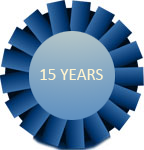Medicare plays a significant role for most people over the age of 65. It also helps any young person with a disability or a patient with End-Stage Renal Disease (ESRD). But to enjoy the benefits, one has to apply for this government health insurance program. The application process tends to be complicated and lengthy. But with a bit of research, you can ensure you or your elderly parents make an informed choice that facilitates a healthy lifestyle. To help out, here are a few things you need to know about Medicare.
There Are 4 Main Parts of Medicare
Medicare is divided into the following:
-
- Part A: This refers to hospital insurance which covers expenses related to skilled nursing facilities, inpatient hospital, hospice care, and home health.
-
- Part B: This part mostly covers outpatient care, medically necessary physician services, and medical equipment. It can also cover mental health care, X-rays, and lab tests.
-
- Part C: Commonly referred to as Medicare Advantage Plans. With these plans, certain private health insurance companies approved by Medicare offer coverage for several things, including vision, dental, and hearing.
-
- Part D: This refers to coverage for things like prescription drugs, including vaccines and shots.
Application Must Be Completed Before One Turns 65
As soon as your loved one is eligible, apply for Medicare. You have a seven-month period to do this. This is three months before your loved one turns 65 and four months later. This gives you plenty of time to start researching and applying on time. As mentioned earlier, the process can be lengthy, and the number of people applying is high. In 2017, about 17.2% of people in the US were covered by Medicare. By 2020, the people enrolled were about 18.4%. Applying on time ensures that your loved one gets coverage on time, and you get to avoid penalties associated with late applications.
Medicare Is the Main Insurer for Adults Aged 65 and Above
You become qualified to apply for Medicare three months before your 65th birthday. However, you can qualify earlier if you have End-Stage Renal Disease (ESRD), a disability, or ALS. Even if you were initially under any other health plans, the moment you turn 65, Medicare automatically becomes your primary insurer. Other forms of health insurance you may have become secondary. This is true even if you have yet to apply for Medicare.
You Can Supplement Medicare With Medigap Policy
If you can afford it, then it is advisable to supplement Medicare with a Medigap policy. There are various expenses that Medicare will not cover. A lot of senior adults often have dental, vision, or hearing issues. And the out-of-pocket expenses for these medical needs can be costly. According to a study by the Centers for Medicare and Medicaid Services, in 2015, out-of-pocket expenses on dental services increased by around 1.8%. This is about 40% of all dental spending. Medigap covers copayments, coinsurance, and deductibles, reducing the out-of-pocket expense one has to pay.
If You File for Bankruptcy, Inform Your Medicare Administrative Contractor (MAC)
Usually, when one files for bankruptcy, some debts get erased. If you file for Chapter 7 bankruptcy, certain debts like personal loans, credit card balances, overpayments, and medical bills can be discharged, allowing you to move forward. But when you do this, it is important to inform your Medicare Administrative Contractor (MAC) so that any Medicare financial obligations are resolved. Note that this also applies to people without outstanding payments.
You Can Make Changes to Your Coverage Plan
If you or a loved one is a beneficiary of Part D Medicare prescription drug coverage, you can make changes during the enrollment period, which happens from October 15t to December 7th. This allows you to check that the medications you are using will continue to be covered. If not, you can switch to a plan that will continue covering your medication.
Medicare plays an important role in the health of anyone aged 65 and above. Understanding what lies ahead allows you to make informed choices, whether for yourself or your loved one.



